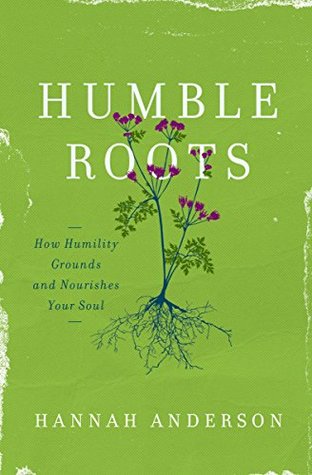More on this book
Community
Kindle Notes & Highlights
Like old Mr. Jefferson in Dot’s Hair Bo-tique, we must learn about our roots. And we learn this by encountering Jesus Himself. Through His humanity, we learn what ours is supposed to be. Through His deity, He enables us to be what we are supposed to be.
When we consider our resources, it is not enough to simply count our one thousand gifts. Our one thousand gifts are actually one thousand opportunities: the very means by which God intends to seed His world.
The natural resources that you enjoy—time, money, intelligence and abilities, social status, political freedom—all of these gifts have been given to you to “seed” the world with other healing plants. So instead of asking “Do I deserve this gift?” humility teaches us to ask, “What has God given and what responsibility do I have because of it?” And by doing so, humility changes the frame of reference entirely. Suddenly we are no longer at the center; God is. Suddenly our sense of entitlement or guilt no longer drives our choices. Suddenly everything is a gift and everything has purpose.
But what if God is present in the brokenness? And what if He isn’t simply present but He’s actively defeating it? What if humility teaches us to believe that God can bring fruit from briers?
While no human answer to the problem of evil is entirely satisfying, this doesn’t mean that there are no answers. We may not understand it all, but we cling to what we do know. And what we do know—what Christians throughout history have clung to—is that the God of the universe does not abandon us in our suffering. We may not know why suffering happens; we may not know how to free ourselves from it; but we do know that Jesus entered our brokenness and took it on Himself. We do know that “He humbled himself by becoming obedient to the point of death, even death on a cross.”
What better way to diminish the King of the universe than to crown Him with the very curse that hangs over His creation? What better way to triumph over Him than for evil to adorn His head? What could be more humiliating than to have our brokenness rest on Him? But it is from these very thorns that Jesus proves His power. It is from these very thorns that He shows how humility overcomes the brokenness. It is from these very thorns that He produces sweet, abundant fruit. And so, in His humility, He opens not His mouth. “When he was reviled,” Peter writes, “he did not revile in return; when he
...more
Humility teaches us that God is actively redeeming the world. And because He is, we can experience the relief of confessing our brokenness—whether it is intentional sin, our natural limitations, or simply the weight of living under the curse. Humility teaches us to find rest in confession. Rest from the need to hide, the need to be perfect. We rest by saying, both to God and others, “I am not enough. I need help.”
The humble person doesn’t deny the pain of this world, or her complicity in it, but she does hope. She continues to forage for the sweetness that God has promised.
one day death’s final blow—the one we each must take for ourselves—will remove from us the final vestiges of pride. And so I wonder, too, if this is why Jesus had to die. Why the redemption of a proud people could only come by a great humbling. Why the grip of pride could only be broken by an act of greater humility.
Even now, the second Adam, the true Son of Man, is tending His Eden. And as we submit to His skillful hand, our own hearts and lives—though perhaps for a time locked and dead—will break forth in green.
So here we are—two generations and a world of opportunities later—still wrestling with the same issues. And the reason we are is because we have never really answered the basic questions of identity. Instead, we’ve tried to answer how identity manifests itself without first answering where identity comes from; we’ve tried to figure out where a woman should spend her life without first answering who she should be. We’ve taken shortcuts, and these shortcuts have led us directly to our present confusion and restlessness.


